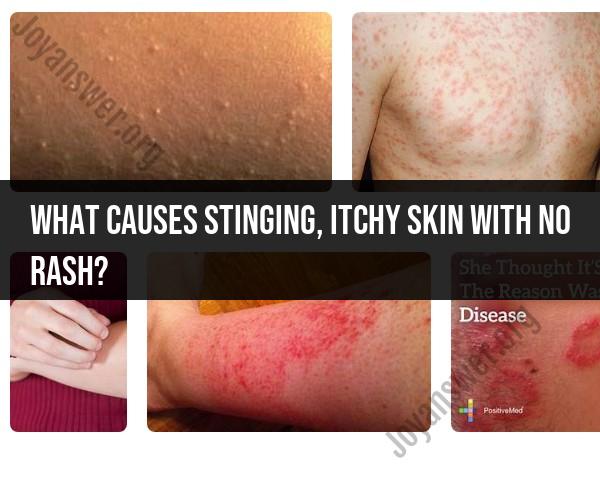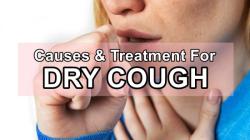What causes stinging, itchy skin with no rash?
Stinging and itchy skin without a visible rash can have various causes, and determining the exact reason may require a medical evaluation. Here are some potential causes and remedies, but it's important to consult with a healthcare professional for an accurate diagnosis and appropriate treatment:
Causes:
Dry Skin:
- Dry skin can lead to itching and a stinging sensation.
- Remedy: Keep your skin well-hydrated by using moisturizers regularly, especially after bathing.
Allergies:
- Exposure to allergens in the environment or certain substances can cause skin irritation.
- Remedy: Identify and avoid potential allergens. Antihistamines may help alleviate symptoms.
Irritants:
- Contact with irritants like harsh soaps, detergents, or chemicals can lead to skin discomfort.
- Remedy: Use mild, hypoallergenic products and avoid harsh chemicals.
Psychological Factors:
- Stress, anxiety, or psychological factors can sometimes manifest as skin discomfort.
- Remedy: Practice stress-reduction techniques, such as meditation or deep breathing exercises.
Nerve Disorders:
- Conditions like neuropathy or nerve disorders can cause abnormal sensations in the skin.
- Remedy: Consult a healthcare professional for proper diagnosis and management.
Medications:
- Certain medications may have side effects that include skin irritation.
- Remedy: Consult your doctor if you suspect a medication is causing the symptoms.
Temperature and Humidity:
- Extreme temperatures or low humidity levels can contribute to skin dryness and discomfort.
- Remedy: Maintain a comfortable environment and use a humidifier if needed.
Insect Bites:
- Insect bites, even without visible welts or rashes, can cause itching and stinging.
- Remedy: Apply over-the-counter anti-itch creams or take antihistamines.
When to Seek Medical Attention:
If your symptoms persist or worsen, or if you experience additional symptoms, it's crucial to consult a healthcare professional. Additionally, seek prompt medical attention if you notice any of the following:
- Development of a rash or other skin abnormalities.
- Swelling or redness that extends beyond the initial site of discomfort.
- Difficulty breathing or other signs of a severe allergic reaction.
General Tips:
Avoid Scratching:
- Scratching can worsen the irritation. Keep your nails short and try not to scratch the affected area.
Cool Compress:
- Apply a cool compress to the affected area to alleviate itching and stinging.
Hydration:
- Stay well-hydrated by drinking plenty of water.
Loose Clothing:
- Wear loose, breathable clothing to avoid further irritation.
Remember, these suggestions are general and may not address the specific cause of your symptoms. Consult with a healthcare professional for an accurate diagnosis and tailored treatment plan.
It's important to remember that I cannot provide medical advice. If you are experiencing stinging and itchy skin without a visible rash, it's crucial to consult a qualified healthcare professional for diagnosis and proper treatment. However, I can share some general information about potential causes and management strategies:
1. Potential Causes:
There are many possible causes of stinging and itchy skin without a rash, some of which are more common than others. Here are a few examples:
- Dry skin: This is a frequent culprit, especially during colder months or with frequent handwashing.
- Insect bites or stings: Even if no visible bump appears, the reaction can cause itching and stinging.
- Allergic reactions: This can be triggered by various substances like cosmetics, detergents, jewelry metals, or even certain foods.
- Skin conditions: Eczema, psoriasis, and hives are examples of conditions that can cause itching and stinging without a visible rash.
- Neurological conditions: In some cases, nerve issues can trigger sensations of itching and stinging without a physical cause.
- Medications: Certain medications can cause side effects like skin irritation and itching.
2. Management and Alleviation:
Self-care approaches can help manage symptoms in some cases, but always prioritize professional medical advice. Here are some general tips:
- Identify and avoid triggers: If you suspect a specific trigger, like an allergen or irritant, avoid it.
- Moisturize regularly: Use fragrance-free and gentle moisturizers to hydrate dry skin.
- Cool compresses: Apply cool cloths to affected areas to soothe itching and stinging.
- Calamine lotion: This can offer temporary relief for mild itching.
- Oatmeal baths: Colloidal oatmeal baths can have calming and anti-inflammatory effects.
- Over-the-counter medications: Antihistamines or topical corticosteroids might be helpful depending on the cause.
3. Underlying Medical Conditions:
Certain medical conditions can manifest as stinging and itchy skin without a rash. These include:
- Kidney disease: Itching can be a symptom of chronic kidney problems.
- Liver disease: Similar to kidney issues, liver problems can cause itching.
- Diabetes: Dry skin and itchiness are common symptoms of diabetes.
- Thyroid disorders: Both an overactive and underactive thyroid can affect skin health and cause itching.
- Iron deficiency: This can sometimes manifest as skin irritation and itching.
Remember: This information is for general knowledge and should not be a substitute for professional medical advice. If you are experiencing persistent or severe stinging and itchy skin, please consult a qualified healthcare professional for diagnosis and appropriate treatment.












